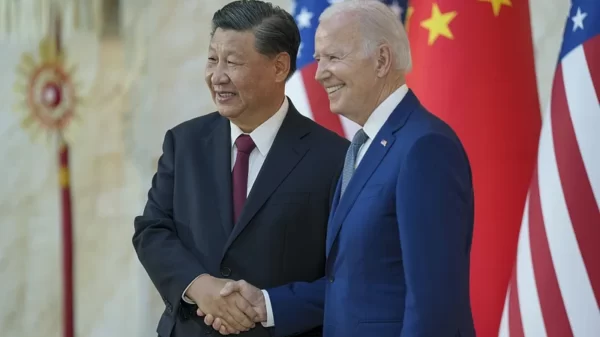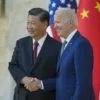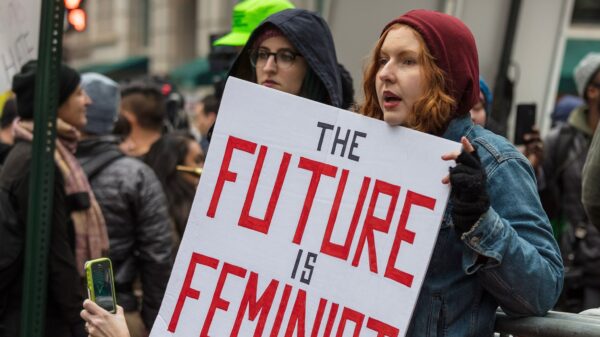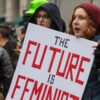Staff writer Salomé Ichay explores the significant impact of the US TikTok ban on the upcoming US elections and US-China relations.
On the 24th of April, U.S. President Joe Biden signed a bill into law dictating TikTok’s parent Chinese company, ByteDance, sell the social media platform to a US-approved buyer in the next 9 months at the risk of being banned in the country. A 90-day extension may be granted to ByteDance if the company comes close to closing a deal. This bill was proposed in the Senate in the context of fear for national security as the Chinese government could use the app to spy on its American users and subtly shape public opinion, especially with the upcoming 2024 U.S. presidential elections.
The Biden administration believes the Chinese Communist Party (CCP) could take advantage of its control over the social media platform to spread propaganda and influence its users. As expected, TikTok filed a lawsuit against the American government over this new law, signalling a high-stakes court battle in Washington in the near future. Keeping this in mind, one must consider the potential impacts of this ban on not only the relationship between China and the United States, but also on the upcoming presidential elections.
The TikTok bill and US-China relations
It is no secret that the United States and China have always had a difficult diplomatic relationship. Opposite political ideologies and economic interests have resulted in an ongoing competition between the two countries. This legislation is a perfect illustration of their tense relationship as it underlines the fear and lack of trust felt between the United States vis-à-vis the Asian state.
If the ban of the app were to go through, the Chinese government has declared that it would do everything in its power to undermine the confidence of foreign investors to put their money in the United States, thereby exacerbating the tensions between the two competitors. Additionally, TikTok chief executive Shou Zi Chew and his legal team’s main argument builds on the alleged unconstitutionality of this forced sale.
This bill confers an unprecedented power to dismantle any media platform that could go against the U.S. government’s interests. TikTok has also argued that strict measures to protect the data of its American users have already been taken.
Tiktok’s case in court is particularly relevant as it highlights America’s double standard regarding the currently Chinese-owned app. Indeed, instead of passing broader tech regulations related to privacy and transparency which would cover the industry at large, Biden’s administration has focused its policy on this specific Chinese company.
It is essential to remember that America’s concerns of “national security” safeguarding currently rely on suspicions since the government has not offered any piece of evidence demonstrating unlawful acts on the part of ByteDance.
Although it does not necessarily mean the Chinese government should be completely exonerated, one may pinpoint the bias guiding those accusations. American accusations are related to national security threats and the potential spread of Chinese propaganda. These accusations should be understood in the broader context of the United States’ longstanding agenda regarding Chinese companies. Indeed, in the past few years, America has sanctioned Huawei and imposed restrictions on exports of advanced chips to China.
Currently estimated at 170 million users in the United States, it is not surprising that many American content creators have come forward to oppose this law. For instance, Shira, a full-time content creator going by the name ‘shirashiraonthewall’ on the platform, generates income through partnerships with TikTok. She evokes the significant consequences of this potential ban not only referring to her business but also to the thousands of people who could lose their jobs.
Many companies use TikTok to promote their company and develop their respective business. This is especially the case for start-ups working on tight budgets, who may see a decrease in their revenue streams as a result of not being able to advertise their product on TikTok anymore. Moreover, many content creators make a living off TikTok.
Banning the app could raise the American unemployment rate – TikTok reports that the app provides at least 224,000 jobs in the United States. If the app were not to be sold to a non-Chinese buyer, small and medium enterprises as well as content creators would have to find another source of income and an alternative method to reach Gen Z.
How does this bill relate to the upcoming U.S. elections?
Although this law attempts to force the sale of TikTok to a US-approved firm, ByteDance may still be around during the presidential elections in November this year as the deadline for the sale is January 2025. Currently, the US government has not provided evidence of wrongdoing from TikTok. Nevertheless, history has shown that it is not completely irrational for America to be skeptical of its rival’s behaviour in the near future.
In fact, the Chinese company may choose to influence the elections while it still can. This interference could be as simple as promoting certain messages to its users, for instance aiming to encourage them to oppose a bill and letting them know how they can make their voices heard. Another way to shape the elections could be to have an algorithm putting forward some information while neglecting other ideas that may go against their interests.
Furthermore, Biden’s bill could wreak havoc on the results as Trump’s public announcement of his opposition to the ban may encourage ByteDance to support his campaign to further increase his popularity in the polls (where he is already ahead as we speak). Trump’s new position regarding the app, having supported its ban in 2020, should be understood in the context of the upcoming elections rather than an innocent and meaningless change of heart in his perception of China.
The alleged threat posed by TikTok to US security is not a new topic in the public debate. However, this issue has suddenly been put at the centre of the political realm coincidentally during the campaigning period of both candidates. This urgency reflects Biden’s desire to appear tough on China instead of strategically weighing the risks and benefits of fast-forwarding a potential ban on the platform used by 170 million Americans. Determining what will happen in the next months is tricky. This is why one should evaluate the arguments on both sides instead of blindly siding with one side over the other.
Biden’s administration’s attempt to scare off China by using TikTok as a proxy may bring more damage to America’s credibility and add further fuel to the fire that is the tense relationship between the two countries. By forcing a sale to avoid any potential interference in the upcoming presidential elections, it may ironically increase the chances of ByteDance deliberately shaping the elections through carefully designed algorithms.
Realistically speaking, if the ban were to go through, it would only be implemented across the country in the next 2 or 3 years. Nonetheless, the potential impacts on American businesses making use of the platform to generate revenue and engage with Generation Z are worth mentioning.


















